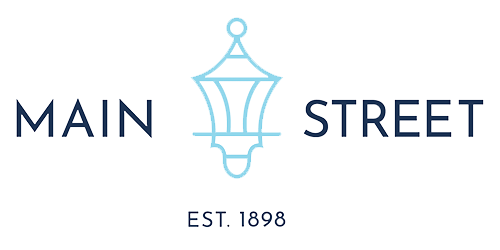As the wine industry has evolved, modern agriculture businesses face many unique exposures. To deal with the variety of natural, economic and human perils the industry faces, selecting the right insurer is a must. You need insight and advice to help make crucial decisions to keep your business moving forward.
Use the yellow hot spots and explore how winery and vineyard insurance can help protect against common risks.

Every winery is a significant financial investment; couple that with an above-average exposure to loss, and selecting the correct business property coverage is critical.
Business property insurance will indemnify you for property damaged or destroyed due to a covered loss. You can add endorsements to customize coverage, such as contract cancellation, tank collapse, tank leakage, and mobile equipment coverage.
If open to the public, you are responsible for the well-being of visitors. This exposure is amplified if you offer winery tours, tastings, or special events.
Given the possible hazards guests can be exposed to, it is important to keep tours confined to safe areas and preplanned routes. General liability insurance provides coverage for bodily injury, physical injury, or other personal injury related claims.
Automobile exposures are significant, especially if you handle your own distribution. Bodily injury and property damage can put your business at significant financial risk.
Commercial auto insurance protects your fleet of trucks and any other vehicles owned by your winery. In addition, if employees drive personal vehicles for business use, you need hired and non-owned auto liability insurance.
What do you do if one of your trusted employees is found guilty of doing something dishonest as it relates to his or her work with you?
Crime coverage can be obtained in your commercial property insurance policy, but coverage is very limited. Consider a standalone policy as well.
Any establishment that sells, serves, or assists in the purchase or use of liquor is open to a liability claim. A lawsuit can arise if a patron gets inebriated at your winery and causes injuries or property damage, even after they leave your property.
If you are in the business of selling or serving alcohol, it is critical you protect yourself from potential financial losses by being covered by a liquor liability insurance policy. Having the right policy in place could help cover your legal costs, court fees, as well as any civil or criminal damages stemming from an incident involving liquor.
There is always a risk of sudden and accidental equipment breakdown in the winery business, and repair or replacement costs are often high. Equipment breakdown coverage can help pay to repair or replace the equipment. It can also cover losses associated with interruption of the business.
Equipment breakdown is typically not covered under a commercial property insurance policy. Obtaining separate equipment breakdown coverage addresses this exposure.
If a batch of wine is spoiled or contaminated due to a refrigeration breakdown, utility interruption, or some other type of foreign substance, a winery has much to lose, including the loss of product and subsequent revenue.
Seek coverage for contamination and spoilage to help offset the costs associated with these events.
Once the grapes have been harvested and the wines blended, make sure your valuable product is protected no matter where it is. Wine in transit also needs coverage for physical loss or damage.
Inland marine insurance for wineries protects against direct physical loss or damage to property or stock while it is being transported. Talk with your risk manager about different policies for wine that is stored on your property and wine that is stored offsite.
Workers’ compensation coverage is required by law. There is a high demand for wine, but demand can lead to haste. Haste leads to accidents and injuries, driving up workers’ compensation costs.
Promoting workplace safety and managing exposures can significantly reduce the frequency and severity of workplace injuries. Proactively addressing high risk scenarios helps control workers’ compensation costs.
Customers and employees who entrust you with private information, such as credit card or social security numbers, put you at risk. If this data is lost, stolen, or compromised, you may be legally obligated to alert those affected by the breach.
Securing a cyber liability policy can cover costs associated with compliance requirements and mitigation expenses, such as data breach notification, securing legal counsel to advise on incident response, credit monitoring services, public relations expenses, regulatory defense, and penalties arising from privacy law violations.
Every manufacturer faces the possibility that an issue can arise with a product after it has been distributed. A product recall can involve lost time, extra shipping costs, and losses associated with not having a sellable product available for consumers.
Product recall coverage helps pay for costs related to removing recalled, damaged, or dangerous products from the marketplace.
It’s estimated that three out of five businesses will be sued by their employees. Companies are vulnerable during the pre-hire process, throughout employment, and during a reduction in workforce. Claims can arise in any size operation. You can do everything right and still be sued.
Coverage comes in the form of a standalone policy and is critical to your risk management strategy. It protects against discrimination, wrongful termination, sexual harassment, and other employment-related allegations.
Without viable grapes, you would be unable to produce wine. Therefore, protecting your grape harvest should be your first line of defense.
Wineries need crop insurance for the cost of crop damage due to weather, vine/insect infections, fires, floods, and other hazards.
Damage to vines and trellises can hinder production of your wines, resulting in in loss of product and revenue.
Outdoor vine and trellis coverage protects against losses associated with wind, fire, vandalism, vehicles, and aircraft damage that threaten the growth of the grapes.
A farm can be more than your place of business; it can also be your home. For this reason, you need to make sure that what you have worked to build is protected.
Farm liability insurance is designed to meet your farm’s unique needs, often including premises, operations, farm product, pollution, and other farm-specific liabilities.
Wineries often participate in numerous events throughout the year. Many insurance policies contain what’s known as a designated premises endorsement. At a high level, this limits coverage to the premise named on the policy (the winery). Participating in a Winery Expo or 5k Fun Run? Liability associated with events like those may not be covered.
Make sure you have coverage that extends to any events in which you wish to participate.
Environmental liability exposures are not just for oil companies, nuclear power plants, and industrial mining operations. Wineries have wastewater and waste management concerns. Depending on the location of the winery, previous use of property may also be an issue.
Strict liability laws apply to the winery industry. Court-ordered injunctions, fines, and cleanup costs can be crippling. Almost all commercial liability policies contain some type of pollution exclusion. Coverage exists for this exposure through a standalone policy.
With unique exposures such as Pollution, Vine and Tree Coverage, Harvested Products, Transit, Contamination, Leakage, Liquor Liability and Product Recall, customizing a specialty policy to meet your needs is key. Let us cultivate a program that fits your needs.
For example, Product Recall will cover the cost of getting a defective product back that would be responsible for possible bodily injury or property damage from its use or existence. Standard product liability insurance does not cover this exposure.
You must also make sure that your insurance package covers your vines as well as equipment and stock, as well as business income if a loss were to occur. It’s easy to focus on the staples such as building, equipment and premises liability insurance but there’s so much more to consider including workers compensation, commercial auto liability and event liability.
For more information on how a custom program can protect your winery or vineyard, contact us today.




